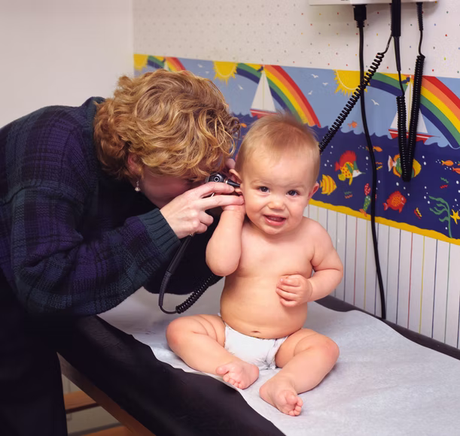Ear problems are something that can easily turn into a bigger issue if they're not treated properly. In this blog post, we will give you some tips on how to treat ear problems before they get too serious. We'll also discuss the different types of ear problems and how to tell if you might be experiencing one.

Earwax Buildup
If you experience any pain or discomfort in your ear, it could be due to a buildup of earwax. Earwax is a natural substance that helps protect your ears from dirt and debris. However, if it builds up too much, it can cause problems.
If you think you have a buildup of earwax, there are a few things you can do to treat it. One option is to use a cotton swab to remove the excess wax. Another option is to use a hard ear wax removal kit, which you can buy at most pharmacies. If you have any concerns about a buildup of earwax, or if home remedies don't seem to be working, make an appointment with your doctor. They can help diagnose the problem and recommend the best course of treatment.
Ear Pain
Ear pain is a common problem that can be caused by several different things. It can be difficult to determine the exact cause of ear pain without seeing a doctor, but some general tips can help. In most cases, ear pain is not serious and can be treated at home. However, if the pain is severe or lasts for more than a few days, it is important to see a doctor to rule out any underlying medical conditions.
Many over-the-counter medications can help relieve ear pain. Pain relievers such as ibuprofen or acetaminophen can help reduce inflammation and pain. Ear drops containing a numbing agent can also help reduce pain. If the ear pain is due to an infection, your doctor may prescribe antibiotics.
Ear Infections
If you're dealing with an ear infection, it's important to see a doctor as soon as possible. Ear infections can be very painful and if left untreated, can cause serious damage to your ears. There are two main types of ear infections: outer ear infections and inner ear infections. Outer ear infections usually occur when there is a build-up of wax in the ear canal. This can cause the ear to become itchy and irritated. Inner ear infections are usually caused by a virus or bacteria and can be very painful. If you're suffering from an inner ear infection, you may experience dizziness, nausea, and vomiting.
Tinnitus
If you experience ringing in your ears, it could be a condition called tinnitus. Tinnitus is the perception of sound when no external noise is present. While there are many potential causes, exposure to loud noise is the most common. If you think you might have tinnitus, see your doctor for an evaluation. There is no cure, but there are treatments that can help lessen the symptoms. In some cases, tinnitus goes away on its own. If you have tinnitus, make sure to protect your ears from further damage and avoid loud noise whenever possible. With proper treatment and care, you can manage your tinnitus and keep it from getting worse.

It is important to keep an eye on your ears and take care of them properly. If you experience any pain, discharge, or irritation, don't hesitate to consult a doctor. With proper treatment, ear problems can be resolved before they become serious.

